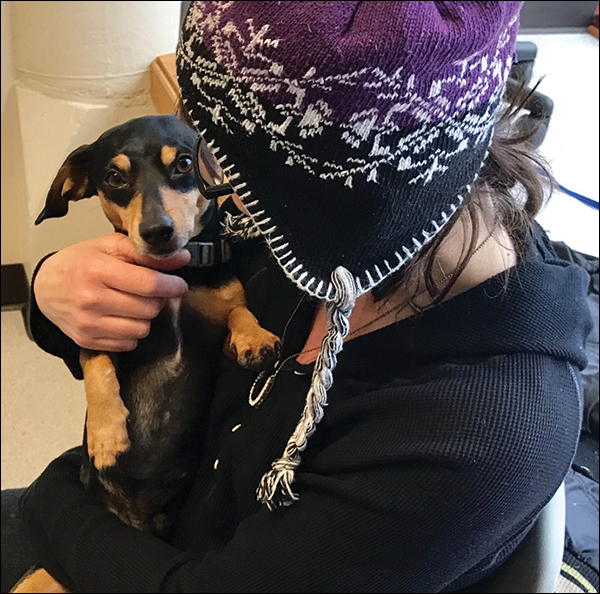
Am Fam Physician. 2017;96(7):464
Several years ago, I was living with my increasingly emotionally and verbally abusive boyfriend. We had been living together for almost a year in Section 8 housing, and our neighbors warned us that they could hear us fighting and were going to call the police. My boyfriend had encouraged me to cut ties with my friends, family, and acquaintances; to quit my job; and to move in with him. I was unable to pay for my own place to live. Although he never physically abused me, there were many times when I feared for my life.
I wanted to leave, but I couldn't find the courage. My boyfriend had been talking about getting a dog for a long time, but I kept saying no, with the thought that I really wanted to leave soon. One day, he came home with a small dachshund. I instantly fell in love with him, but I was scared for the small dog because my boyfriend would often go into rages and berate him. I have a natural love for animals because my father is a veterinarian and helped many animals while I was growing up, even if the owners were unable to pay him.
It really hurt me when my boyfriend wouldn't feed or walk the dog for days and would ignore him when I was out of the house. One night, I came home and the dog had had an accident on the floor. My boyfriend had gone into a rage and beaten him so badly that I decided it was time to get the dog, and myself, out of there. I called the police, and they escorted me out of the house.
I am now living in a tent city, but free from my abusive ex, and I have had my dog with me ever since. He is my constant companion and helps me to stave off depression. He also helps me with my anxiety, making it easier for me to talk to people, and motivates me to take care of my own health so I can continue to care for him. Without him, I don't know where I would be, or if I would be here at all. Finding a vet to care for him was a challenge, but my doctor helped me find a free vet clinic that cares for pets of low-income residents in the city. Also, with the help of the mobile clinic that serves homeless patients and visits our encampment twice a month, I've begun to address my own medical needs. Every day I am thankful that my dog is in my life. I really feel that it was not I who saved him, but he who saved me.—j.f.

COMMENTARY
The literature regarding the health benefits of the human-animal bond, including from animal-assisted therapy, suggests there are a number of positive biomedical and psychological effects, including decreased cortisol levels and blood pressure, and improved response to difficult conditions such as posttraumatic stress disorder. Although adverse reactions are uncommon, risks such as animal bites and zoonotic infections need to be assessed and managed. Animal-assisted therapy and the medical use of the human-animal bond can be thought of as a form of alternative/complementary therapy. As a clinician, I have found that patients like J.F. often take better care of their animals than themselves. By talking to them about their animals and allowing the animals to participate in the care visit, I am discovering new ways to connect with such patients.
